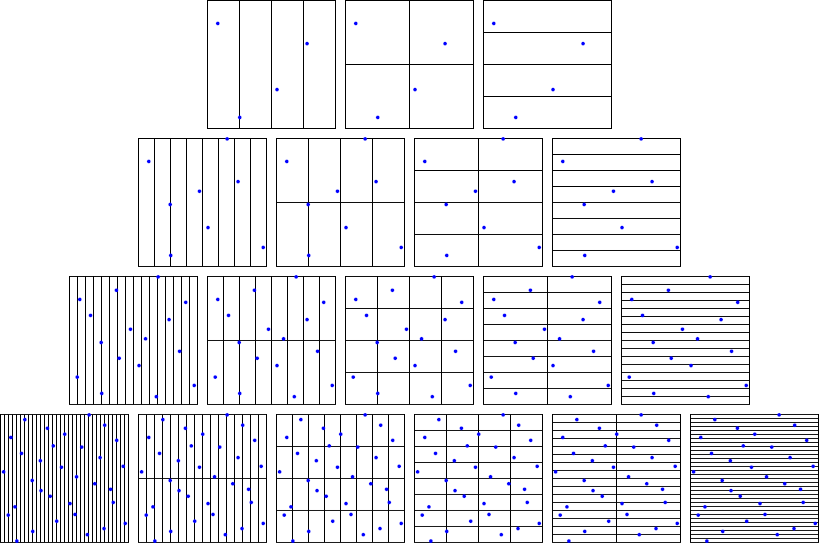A crate to generate pmj02 and pmj02b sample sequences as described in the following papers:
- Progressive Multi-Jittered Sample Sequences by Christensen et al.
- Efficient Generation of Points that Satisfy Two-Dimensional Elementary Intervals by Matt Pharr.
use pmj::{generate, Sample};
use rand::prelude::*;
use rand::rngs::SmallRng;
fn main() {
// generate 4096 samples uing SmallRnd from the rand crate
let mut rng = SmallRng::seed_from_u64(0);
let samples = generate(4096, 0, &mut rng);
// print coordinates
for s in &samples {
println!("sample: {}, {}", s.x(), s.y());
}
}Performance seems to be comparable to the figures stated in the second paper. Generating 4096 points as above takes around 4.8ms on a 1.7GHz CPU (compared to 3.19ms on a 4GHz CPU stated in the paper).
The measure example measures the integration convergence rate (averaged over 100 sequences) for the "disc" and "bilinear" functions in the first paper:
The plot example produces svg images to inspect the stratification and classes of the generated samples. Here is the output showing the stratification of a single sequence when looking at the first 4/8/16/32 samples:
Here is the output showing the first 1024 samples split into 2 or 4 classes:


